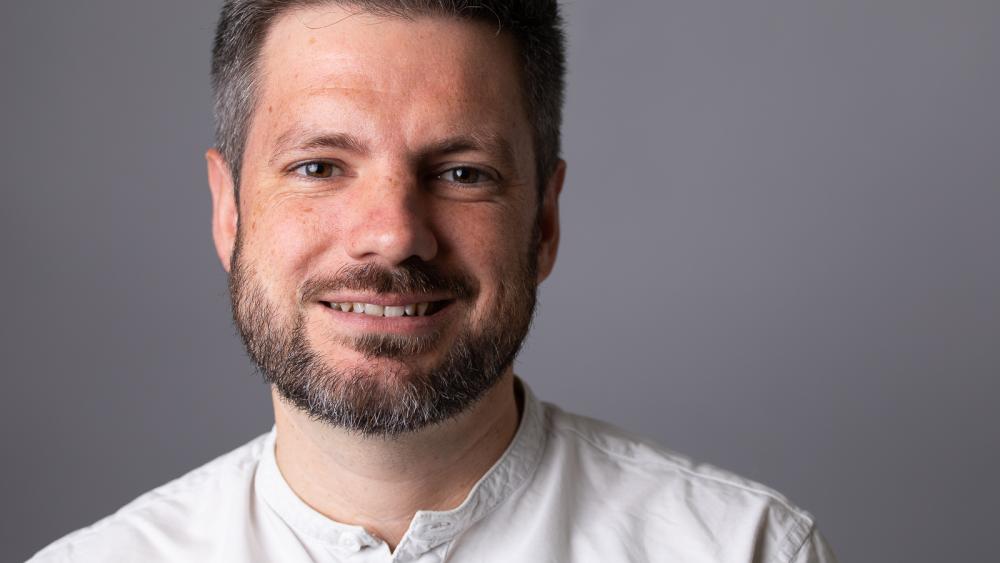Dr Richard Williams

Key information

- Roles
- Department of Music Reader in Music and South Asian Studies
- Department
- School of Arts & Department of Music
- Qualifications
- BA (Oxford), MPhil (Oxford), PhD (London), FHEA
- Building
- Russell Square: College Buildings
- Office
- 515
- Email address
- richard.williams@soas.ac.uk
- Telephone number
- 020 7898 4687
Biography
Richard David Williams is a cultural historian of music in South Asia. He is particularly interested in understanding how music and sound are explored in literature, and how colonialism reoriented early modern musical ideas and practices.
Having originally studied Theology and then Modern South Asian Studies at the University of Oxford, his research brings music and sound studies into conversation with the study of religion and Indian cultural history. He received his PhD from the Music Department at King’s College London, and was then awarded a Leverhulme Early Career Fellowship at the University of Oxford (2015–17), where he worked on music and aesthetics in the eighteenth century within his project, “Beyond the Local: Vernacular Aesthetics in Late Mughal North India”.
His first book, The Scattered Court: Hindustani Music in Colonial Bengal, was published in 2023. This work explores the circulation of musicians, genres, and musicologists between north India and Bengal between c.1750–1900, and examines how musical societies negotiated the changing politics of a colonial landscape.
In connection with this project, he has written on Bengali-language musicology, the performance repertoires of courtesans, and sound arts in Shi’ah Islam. Williams is currently writing up his second book, a cultural history of Ragamala, the early-modern art of imagining musical sound through poetry and painting.
He is also working with Professor Makoto Kitada (Osaka University) on the preparation of a complete English translation of the Gulshan-e-‘Ishq, a seventeenth-century Sufi Romance in Dakani Urdu, composed by Nusrati, the poet laureate of Bijapur. Alongside the translation, Williams and Kitada are preparing a number of studies, in English and Japanese, on the cultural worlds of the Deccan Sultanates.
Williams’ wider work has explored musical culture in seventeenth- and eighteenth-century South Asia; the history of emotions; music in Hindu theology and ritual; and Pakistani digital media and literature. His research languages are Hindi, Brajbhasha, Bengali, and Urdu.
Research interests
Richard David Williams’ research focuses on Hindustani classical music and popular devotional music in Hinduism. His work is particularly interested in the intersection of music and literature, and how sonic practices and musical repertoires circulate in multilingual settings. His research deploys a variety of approaches to explore a broad range of sources from early modern, colonial, and contemporary South Asia.
His first book, The Scattered Court: Hindustani Music in Colonial Bengal, examines how Hindustani music evolved under colonialism. The book reconstructs an interregional, multilingual conversation about the aesthetics of elite art music, and explores the movement of patrons, theorists, and musicians between Hindustan and Bengal. At its centre, the book provides a study of the court-in-exile of the last Nawab of Awadh, Wajid ‘Ali Shah, and the thirty years he spent in Calcutta (1856-1887) and traces the passage of musicians and musical practices from Lucknow to colonial Bengal.
His second book project focuses on Ragamala, the early modern practice of imagining musical sound through poetry and painting. In particular, the book considers the longer history of writings on music in Classical Hindi (Brajbhasha), from c.1500 to 1900.
More broadly, he has also written on Bengali musicology and religious rituals, eighteenth-century religious history, scribal and translation practices, courtesan poets, popular music in Pakistan, Bengali migrants in colonial Burma, the possibilities of global music histories, and the history of emotions.
PhD Supervision
| Name | Title |
|---|---|
| Dishan Abrahams | Digital Dislocations: The Music of the Sri Lankan Tamil Diaspora |
| Arka Chakraborty | Anglophone music in Calcutta, c. 1953-1982 |
| Priyal Chitale | The Politics and Poetics of the Hindustani Film Song, c. 1947–80 |
| Ilyas Tariq Khan | Ilyas Khan, School of Arts, Doctoral Student studying Music and interested in investigating whether Music has meaning. He will examine this by looking at the music of two prominent 20th century artists and composers, John Coltrane (Jazz) and Nusrat Fateh |
| Tom Peterson | The Lyric in Lanka: Alternative Histories of Music through the Hugh Nevill Collection |
| Ruth Westoby | Blood, snake, fire: The mighty body of yoga in early haṭha texts |
Personal links
Explore more of Dr Richard Williams lectures and publications.
Publications
Contact Richard
- Telephone


